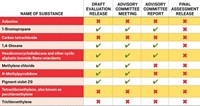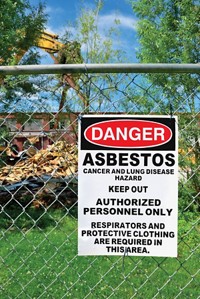Advertisement
Grab your lab coat. Let's get started
Welcome!
Welcome!
Create an account below to get 6 C&EN articles per month, receive newsletters and more - all free.
It seems this is your first time logging in online. Please enter the following information to continue.
As an ACS member you automatically get access to this site. All we need is few more details to create your reading experience.
Not you? Sign in with a different account.
Not you? Sign in with a different account.
ERROR 1
ERROR 1
ERROR 2
ERROR 2
ERROR 2
ERROR 2
ERROR 2
Password and Confirm password must match.
If you have an ACS member number, please enter it here so we can link this account to your membership. (optional)
ERROR 2
ACS values your privacy. By submitting your information, you are gaining access to C&EN and subscribing to our weekly newsletter. We use the information you provide to make your reading experience better, and we will never sell your data to third party members.
Policy
EPA Preps For Potential Legal Fight
Regulation: Agency to test its authority under TSCA to regulate chemicals already on the market
by Cheryl Hogue
June 11, 2012
EPA appears to be gearing up for a court fight over whether or how it can regulate chemicals that are already on the market. James Jones, EPA acting assistant administrator for chemical safety and pollution prevention, said late last week that the agency is preparing to use its regulatory authority to ban, restrict, or require labeling of chemicals under the Toxic Substances Control Act (TSCA).
EPA will take such action under TSCA if any assessment that the agency is conducting for a group of 83 chemicals or classes show that a substance poses an unreasonable risk to human health or the environment (C&EN, April 30, page 28).
“If they are not safe, we will take action,” Jones said at a June 7 meeting of the Environmental Council of the States, an organization of states’ highest ranking environmental regulators.
Jones implied that the agency is girding itself for a legal battle over regulations to control so-called existing substances—chemicals that are already on the market—as opposed to new compounds.
The agency has not attempted to invoke TSCA authority to control an existing substance since 1989, when it banned most uses of asbestos, a known human carcinogen. But in 1991, a federal appeals court struck down the ban. The court found that, despite tens of thousands of pages of documentation, EPA failed to show both that asbestos posed an unreasonable risk to human health and that a ban was the least burdensome regulatory alternative to provide protection.
“We have a difficult [legal] standard to meet with TSCA,” Jones acknowledged. But, he added, “we’ll find out if this is as hard to use as everybody thinks it is.”




Join the conversation
Contact the reporter
Submit a Letter to the Editor for publication
Engage with us on Twitter